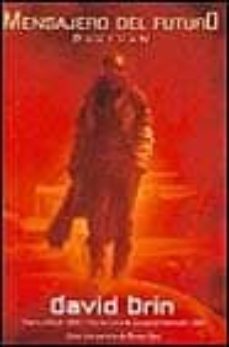Imprescindibles
Más vendidos Libros más leídos eBooks más leídos Todos los libros Todos los libros Autores destacados Series y sagas
Recomendados Libros recomendados Autores destacados Libros que inspiran Vidas con historia LGTBIQ+ English books
Ficción
Literatura Contemporánea Estudios literarios Clásicos Cuentos Poesía Teatro Libros de bolsillo Sagas literarias
Géneros literarios Novela romántica y erótica Novela negra Novela histórica Narrativa fantástica Novela de ciencia ficción Novela de terror Narrativa de humor Narrativa de viajes
No Ficción
Ciencias y tecnología Biología Ciencias Ciencias naturales Divulgación científica Informática Ingeniería Matemáticas Medicina Salud y dietas Formación Idiomas Estilo de vida Libros de Cocina Guías de viaje Narrativa de viajes Deportes Libros de Juegos Manualidades
Humanidades Autoayuda y espiritualidad Ciencias humanas Derecho Economía y Empresa Psicología y Pedagogía Filosofía Sociología Filología Biblioteconomía Estudios filológicos Estudios lingüísticos Estudios literarios Historia y crítica de la Literatura
Infantil
Juvenil
#Jóvenes lectores Narrativa juvenil Clásicos adaptados Libros Wattpad Libros Booktok Libros de influencers Libros de Youtubers Libros Spicy Juveniles Libros LGTBIQ+ Temas sociales Libros ciencia ficción Libros de acción y aventura Cómic y Manga Juvenil Cómic Juvenil Manga Shonen Manga Shojo Autores destacados Jennifer L. Armentrout Eloy Moreno Nerea Llanes Hannah Nicole Maehrer
Libros de fantasía Cozy Fantasy Dark academia Hadas y Fae Romantasy Royal Fantasy Urban Fantasy Vampiros y hombres lobo Otros Misterio y terror Cozy mistery Policiaca Spooky Terror Thriller y suspense Otros
Libros románticos y de amor Dark Romance Clean Romance Cowboy Romance Mafia y amor Romance dramatico Romcom Sport Romance Otros Clichés Enemies to Lovers Friends to Lovers Hermanastros Slow Burn Fake Dating Triángulo amoroso
Cómic y Manga
Novela gráfica Novela gráfica americana Novela gráfica europea Novela gráfica de otros países Personajes, series y sagas Series y sagas Star Wars Superhéroes Cómics DC Cómics Marvel Cómics otros superhéroes Cómics Valiant
Books in English
Books in English Fiction Non Fiction Comic Teen & Young Adult Main Authors Ken Follett Agatha Christie Stephen King Jane Austen Maggie O’Farrell On sale
Books in English for Young Adults Age 13+ Age 15+ Young Adult Authors Rebecca Yarros Sarah J. Maas Brandon Sanderson Ali Hazelwood Alice Oseman
Audiolibros
Literatura Contemporánea Narrativa fantástica Novela de ciencia ficción Novela de terror Novela histórica Novela negra Novela romántica y erótica Historia Historia universal
Humanidades Autoayuda y espiritualidad Ciencias humanas Economía y empresa Psicología y pedagogía Filosofía Infantil Audiolibros infantiles
Ciencia y tecnología Ciencias naturales Divulgación científica Medicina Salud y dietas Arte Cine Música Historia del arte
eBooks
Literatura Contemporánea Narrativa fantástica Novela de ciencia ficción Novela de terror Novela histórica Novela negra Novela romántica y erótica Juvenil Más de 13 años Más de 15 años Infantil eBooks infantiles
Humanidades Autoayuda y espiritualidad Ciencias humanas Economía y Empresa Psicología y Pedagogía Filosofía Historia Historia de España Historia Universal Arte Cine Música Historia del arte
Ciencia y tecnología Ciencias naturales Divulgación científica Medicina Salud y dietas Filología Estudios lingüísticos Estudios literarios Historia y crítica de la Literatura Estilo de vida Cocina Guías de viaje Ocio y deportes
David Brin
Recibe novedades de David Brin directamente en tu email
Filtros
Del 1 al 20 de 36
LA FACTORIA DE IDEAS 9788498005912
Ninguna especie en todo el universo ha alcanzado las estrellas sin la ayuda de un guía, excepto quizá la raza humana. ¿Existió hace muchos eones una extraña raza que dio inicio al desarrollo de la humanidad? Y si fue asi, ¿por que nos abandono? Cercando el Sol, en las cavernas de Mercurio, la expedicion Navegante Solar se prepara para realizar el viaje mas trascendental de la historia de la humanidad. Un viaje al sofocante infierno de la estrella de fuego. Alli se han detectado formas de vida desconocidas que podrian ser la raza primigenia, los autenticos antepasados del hombre.Para encontrar respuestas a todos esos interrogantes, sera necesario sumergirse en el ardiente corazon del Sol.David Brin es cientifico, conferenciante, consultor tecnico y novelista de renombre. Sus obras han estado en las listas de las mas vendidas del New York Times, y por ellas ha ganado varios premios Hugo y Nebula, entre otros.
Ver más
Tapa blanda
LA FACTORIA DE IDEAS 9788498006940
La Streaker, una nave terrestre de exploración, ha de buscar refugio en el planeta acuático Kithrup a causa de una avería. La tripulación a bordo de la nave guarda uno de los descubrimientos más importantes de la historia galáctica. Sobre ellos, en el espacio, las armadas alienígenas se enzarzan en una titánica batalla para reivindicar sus derechos sobre la nave y hacerse con el valioso botín que esta encierra. Mientras, un pequeño grupo de humanos y delfines de la tripulación se afanan por plantarle cara a la rebelión armada y a un planeta hostil para salvaguardar su secreto: el destino de los progenitores, la legendaria primera raza que sembró la sabiduría entre las estrellas.
Ver más
Tapa blanda
BALLANTINE BOOKS (RANDOM) 9780812970098
In this novel from Verne's "Extraordinary Journeys" series Professor Lidenbrock and his nephew, Axel, enter an extinct Icelandic volcano. What they find there is truly extraordinary--a thriving ecosystem, giant shepherds, the corpse of an earlier explorer, and human beings.
Ver más
Tapa blanda
EDICIONES B 9788440679833
Traducción de Carlos Gardini
Ver más
Tapa blanda
ORBIT (LITTLE BROWN BOOK GROUP) 9781857233704
Tapa blanda
EDICIONES B, S.A. 9788466613026
Traducción de Rafael Marín
Ver más
Tapa blanda
Del 1 al 20 de 36


































